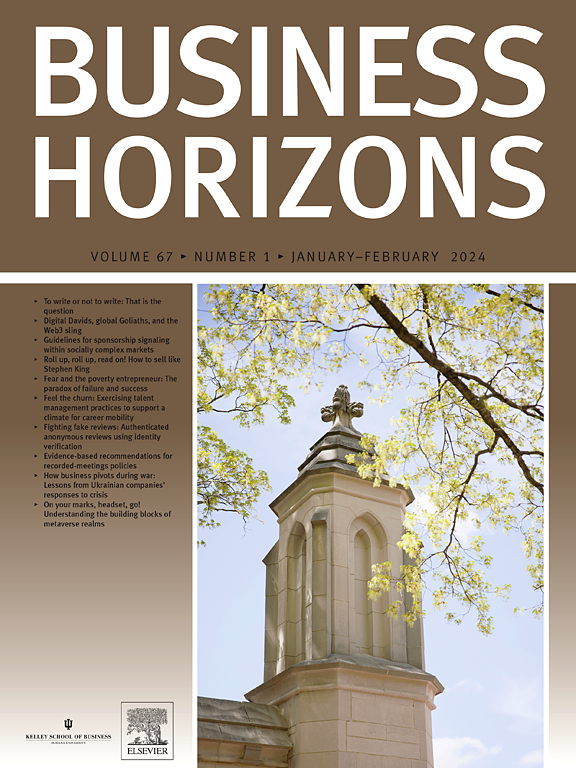个人和平:前战斗人员、企业家精神与和平建设
IF 7
3区 管理学
Q1 BUSINESS
引用次数: 0
摘要
从战争到和平的过渡有两个要求:重建和发展被战争撕裂的物理空间,以及前战斗人员在社会空间中的解除武装、复员和重新融入(DDR)。后者尤其具有挑战性,因为前战斗人员受到高度侮辱,缺乏正式就业培训,而且必须与东道社区和解。我们认为,创业的道路使前战斗人员能够实现这两个要求,从而防止未来的暴力。我们认为,企业家精神通过两条因果路径影响社区暴力水平:开办企业对企业家和雇员的直接影响,以及转型后的经济、社会和政治对更大社区成员的间接影响。我们提出了关于前战斗人员创业项目的新数据,并研究了它们与当地受害风险的关系。我们发现,包容性的招聘做法以及与民间社会的伙伴关系使地方空间更加和平。研究结果对DDR具有启示意义,并表明小型地方企业在建设和平与繁荣方面发挥着重要作用。本文章由计算机程序翻译,如有差异,请以英文原文为准。
The individual peace: Ex-combatants, entrepreneurship, and peacebuilding
The transition from war to peace has two requirements: the rebuilding and development of the physical space torn by war, and the disarming, demobilizing, and reintegrating (DDR) of ex-combatants in the social space. The latter is particularly challenging because ex-combatants are highly stigmatized, lack training for formal employment, and must reconcile with their host communities. We posit that the path of entrepreneurship enables ex-combatants to achieve both requirements, thereby preventing future violence. We argue that entrepreneurship affects community violence levels through two causal paths: the direct effect that opening a business has on the entrepreneur and employees, and the indirect effect that a transformed economy, society, and politics have on members of the larger community. We present new data on ex-combatant entrepreneurial projects and examine their relationship to local victimization risks. We find that inclusive hiring practices and partnerships with civil society make local spaces more peaceful. The results have implications for DDR and suggest there is an important role for small, local businesses in building peace and prosperity.
求助全文
通过发布文献求助,成功后即可免费获取论文全文。
去求助
来源期刊

Business Horizons
BUSINESS-
CiteScore
17.70
自引率
5.40%
发文量
105
期刊介绍:
Business Horizons, the bimonthly journal of the Kelley School of Business at Indiana University, is dedicated to publishing original articles that appeal to both business academics and practitioners. Our editorial focus is on covering a diverse array of topics within the broader field of business, with a particular emphasis on identifying critical business issues and proposing practical solutions. Our goal is to inspire readers to approach business practices from new and innovative perspectives. Business Horizons occupies a distinctive position among business publications by offering articles that strike a balance between academic rigor and practical relevance. As such, our articles are grounded in scholarly research yet presented in a clear and accessible format, making them relevant to a broad audience within the business community.
 求助内容:
求助内容: 应助结果提醒方式:
应助结果提醒方式:


